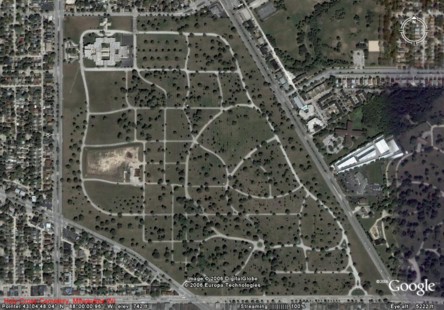Cardinal Dolan’s Cemetery Deal Smacked down
By Mark Silk
Back in 2007, when he was still Archbishop of Milwaukee, Cardinal Timothy Dolan asked the Vatican for permission to transfer a $55-million fund for the maintenance of its cemeteries into a special trust. Dolan’s request came just a few weeks before the Wisconsin Supreme Court issued a ruling that allowed victims of sex abuse to sue the archdiocese. Seventeen days after the ruling, the Vatican approved the request. When this move came to light two years ago, Dolan, now ensconced as Archbishop of New York, was roundly criticized for seeking to deny the victims their due. Denouncing what he termed “old and discredited attacks,” he dismissed the idea “that establishing a perpetual care fund from money belonging to cemeteries and designated for that purpose – as required by state law and mandated by the archdiocesan finance council – was an attempt to shield it from the bankruptcy proceedings.” Given that the Archdiocese of Milwaukee declared bankruptcy four years after the trust was created, this was not, strictly speaking, a fib. Strictly speaking, the point of creating the trust was, as Dolan put it in his letter to the Vatican, to provide “an improved protection of these funds from any legal claim and liability.” After the archdiocese declared bankruptcy, the bankruptcy judge disallowed Dolan’s move, making the funds subject to the claims of creditors. The archdiocese then went to federal court, where U.S. District Judge Rudolph T. Randa quickly ruled that the archdiocese had a religious right to shield the funds in a way that a secular entity in bankruptcy would not, inasmuch as care of the dead was a central part of the church’s religious practice. This week, a federal appeals court reversed Randa, saying that neither the First Amendment nor the Religious Freedom Restoration Act entitled the archdiocese to special bankruptcy treatment, and sent the case back to district court for a determination on the (secular) merits. Recognizing the Randa was unlikely to receive the case again, the appellate panel nevertheless went out of its way to make clear that he should have recused himself, as the creditors committee of abuse victims had asked – because nine of the judge’s relatives are buried in archdiocesan cemeteries, including his parents, whose plots he purchased himself. “The Committee argues that a reasonable person would question the judge’s impartiality because he would be emotionally attached to the well-being of his family members’ resting places,” declared the panel, continuing drily: “The Archdiocese argues that no reasonable person would “make [that] leap in logic.” We think it surprising, given this litigation involves cemetery care and strongly held beliefs about the same, that the Archdiocese would give so little weight to the importance of where the deceased are buried.” Sure, lawyers like to make any and all arguments they can, but it is not only contradictory to claim on the one hand that maintaining cemeteries is so essential to the practice of faith that it entitles the church to a religious exemption from bankruptcy law and to assert on the other that a devout member of the faith would have no personal stake in safeguarding the church’s wherewithal to do so. It suggests that the church’s claims of religious liberty are merely opportunistic. And when it has to do with preventing victims of clerical sexual abuse from getting their due, it’s also a scandal.
|
.
Any original material on these pages is copyright © BishopAccountability.org 2004. Reproduce freely with attribution.
